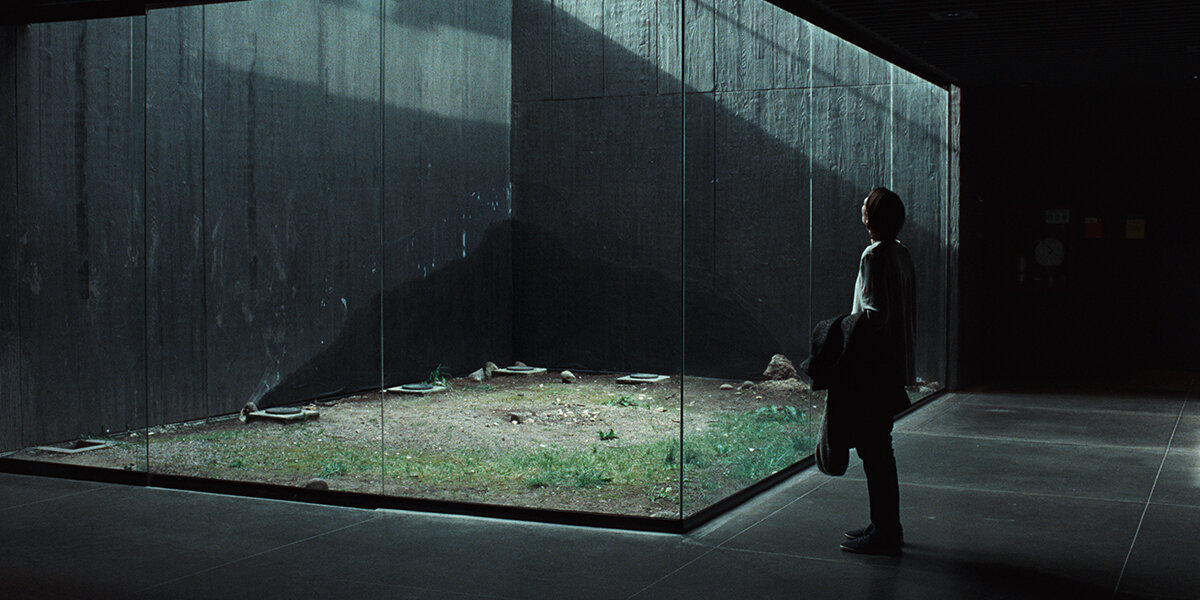Review by Zach Dennis
A good way to describe the affliction that is affecting Jessica Holland (Tilda Swinton) in the latest film from Thai filmmaker Apitchatpong Weerasethakul would probably be a knock.
At first, you think it’s a proverbial “bump in the night,” but the classics being evoked in Memoria, much like the rest of his work, is less Dickensian than that. Instead, it feels like something more celestial and far reaching than than an easy tie to literature.
Memoria, maybe more than the rest of Weeasethakul’s output, feels tethered to another world, or better yet, an alternative universe.
The noise is causing Jessica a lack of sleep as she visits her sister in Colombia, who has been in the hospital for an undetermined amount of time. Her husband, a professor, suggests she bring her problem to a local sound technician. The two are able to identify the noise and strike up a bit of a subtly flirtatious friendship along the way. She also meets a French archeologist, who ends up inviting her to a nearby dig site to see more of the early human remains that she and her team are studying.
This trip into the jungle works as the impetus to further dive deeper into this science fiction landscape that Weerasethakul is taking us into, but what feels so special about the world in Memoria is how the writer/director finds his foundation in the mundane and familiar rather than the opaque and unique.
Tilda Swinton in ‘Memoria’
Most of the first half of the movie is built on silence, which creates a level of fear in the anticipation of the next example of the noise ripping through the screen. Almost as if the noise was Michael Myers in Halloween, the sound is designed to puncture whatever scene it appears in and its randomness and intensity creates this horror effect that doesn’t scare you but really disrupts whenever it appears – for example, it appears at a dinner between Jessica and her sister’s family and while out for food and drinks with her archaeologist friend.
For a movie that moves at a slow pace, this adds some anticipation as at any moment this puncturing noise will jolt you back into reality, much like it does to Jessica.
Once Jessica makes it to a small village, she comes across a man catching and preparing fish along a riverbed. She strikes up a conversation with him, and it seems to transport us. For Weerasethakul, an alternative universe isn’t a new planet or frontier. It isn’t a new land to conquer. Instead, it means spiritually engaging oneself with the world already in front of them and finding solace in that.
It might seem unambitious to lack the desire to create a new world but rather dive more deeply into the one we have, but that seems to also be the most fulfilling part of Memoria and the rest of the work by Weerasethakul. Now, this is aided by an unfamiliar environment (whether it’s his native Thailand or in this case, Colombia – and I wonder what something in the American frontier would feel like with his mind), but never does that take away from what’s being created here.
As the movie goes along, it becomes more about the subtle and unseen (a breath, a memory, a picture). This attention to the small and perceived insignificant is where Weerasethakul excels and taps into a level of engagement with film that I don’t necessarily get to experience as often as I’d like.

